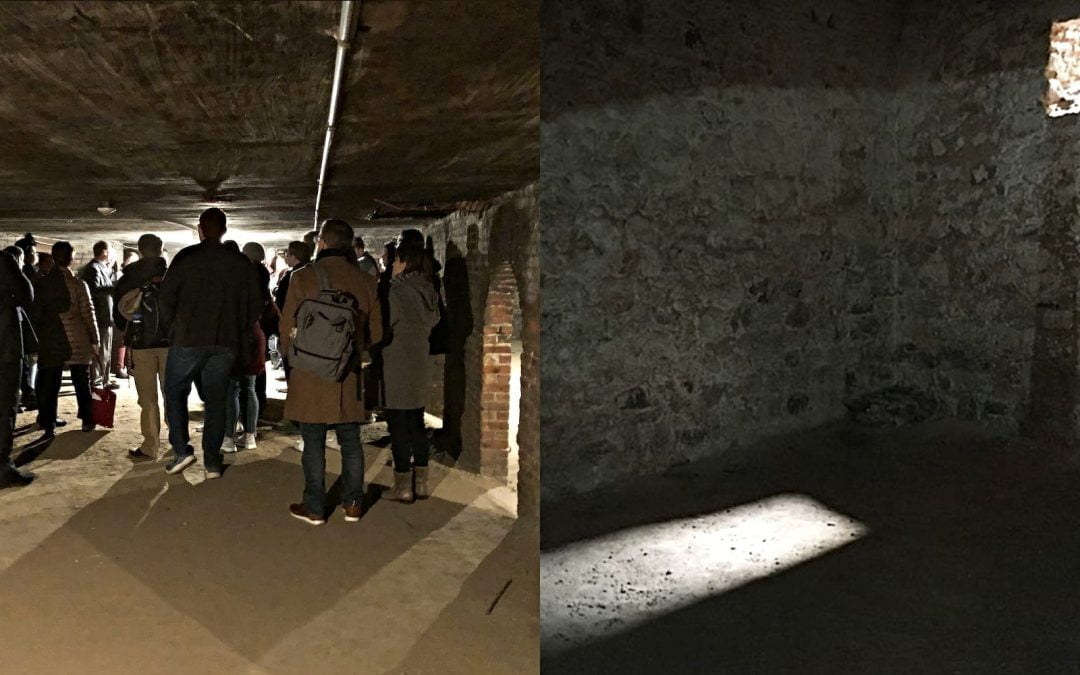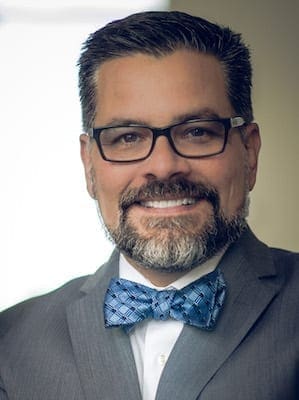Beneath Plymouth Church in Brooklyn, New York, lies the hallowed grounds of the Underground Railroad affectionately called “the Grand Central Depot.”
Last week, EthicsDaily was honored to cover the Cooperative Baptist Fellowship’s 2019 Advocacy in Action held in New York City.
A group of pastors, lay leaders and seminary students visited the United Nations, the Tenement Museum, Metro Baptist Church and Riverside Church as they learned about the importance of advocacy.
At Plymouth Church, Pastor Brett Younger explained the rich history of the church. Participants even sat in the pew where Abraham Lincoln sat when he visited Plymouth before he ran for president.
Plymouth is indeed ripe with extraordinary history, but none more so than its participation in the Underground Railroad.
While Henry Ward Beecher was Plymouth’s pastor during the middle part of the 19th century, the Underground Railroad was established and running.
When slaves arrived in Brooklyn after a long and arduous journey, Beecher and the Plymouth members worked diligently helping them find a future with the possibility of freedom and hope.
However, before freedom’s light could be entertained, slaves would have to endure periods of long darkness. After arriving, they were kept in the basement waiting to be relocated into a safe home.
Just imagine waiting in the darkness after such a terrifying journey. Each time the door opened, the men and women in that basement were forced to contemplate whether freedom or capture was on the other side.
As our group silently breathed in the heaviness and sacredness of the basement, my mind quickly took me back to another dark room more than 6,000 miles away on the coast of Ghana, West Africa.
The African slave trade began on the Ghanaian coast, as Europeans hunted indigenous people forcing them into servitude. After they were caught, the British and Portuguese imprisoned the Africans in castle dungeons.
Beneath the castle, thousands of men, women and children were chained in darkness.
They waited in the dungeons, many dying from dehydration and disease. The survivors were then sent to a faraway land as slaves for the white ruling classes of Europe and America.
When I visited the slave castles in Ghana, I was struck by their inhumanity. To think humans could treat each other with such disregard for decency and compassion infuriated me.
However, the most shocking moment was when I descended into the male dungeon.
Our guide turned off the lights for a moment, leaving our group in complete darkness. Then, the guide asked us to imagine what it must have been like for the men and women. They were scared, confused and angry.
What the guide said next made my blood grow cold. He pointed out that right above the male dungeon lay the castle chapel.
The soldiers would gather in the chapel for worship, claiming they loved God while human misery and suffering were just feet below.
The dark correlations between the African slave castles and the Underground Railroad cannot be pushed from my mind.
At the castles, Africans waited with hopelessness as they became victims of white supremacy. Their journeys from those dark dungeons would be long and arduous, filled with inhumane conditions and cruel actions toward them.
The darkness of the cells would come to symbolize a terrifying moment in human history, as one group of people exerted their power over another.
The darkness beneath Plymouth Church, even though terrifying in its own right, came to symbolize something else: The long generational journey of African men and women had the potential to end in freedom. The words of 1 John 2:8 come to mind: “Darkness is passing away, and the true light is already shining.”
When I think about these two dark places within history, I am reminded of our present circumstances and the decision we have to make.
We can follow a path toward darkness that leads to the dehumanization of other people, sending us deeper beneath the earth while thinking we are worshipping God.
Or, we can honestly acknowledge and engage the darkness of the world while shining a light to overcome it.
As the runaway slaves of the Underground Railroad waited beneath Plymouth Church, the crack of the door brought an explosion of light.
For the most part, that light began to represent hope that penetrated the deep darkness of racism and slavery and illuminated a brighter future.
Therefore, during this Lenten season, let us not give into darkness. Let us shine the light of hope; a gospel filled with equality, inclusion and freedom for all.
The dark will not go away quickly, but the light of Christ has the power to overcome it and illuminate a hopeful future.
Editor’s note: Video interviews with participants in CBF’s Advocacy in Action 2019 are available here.


